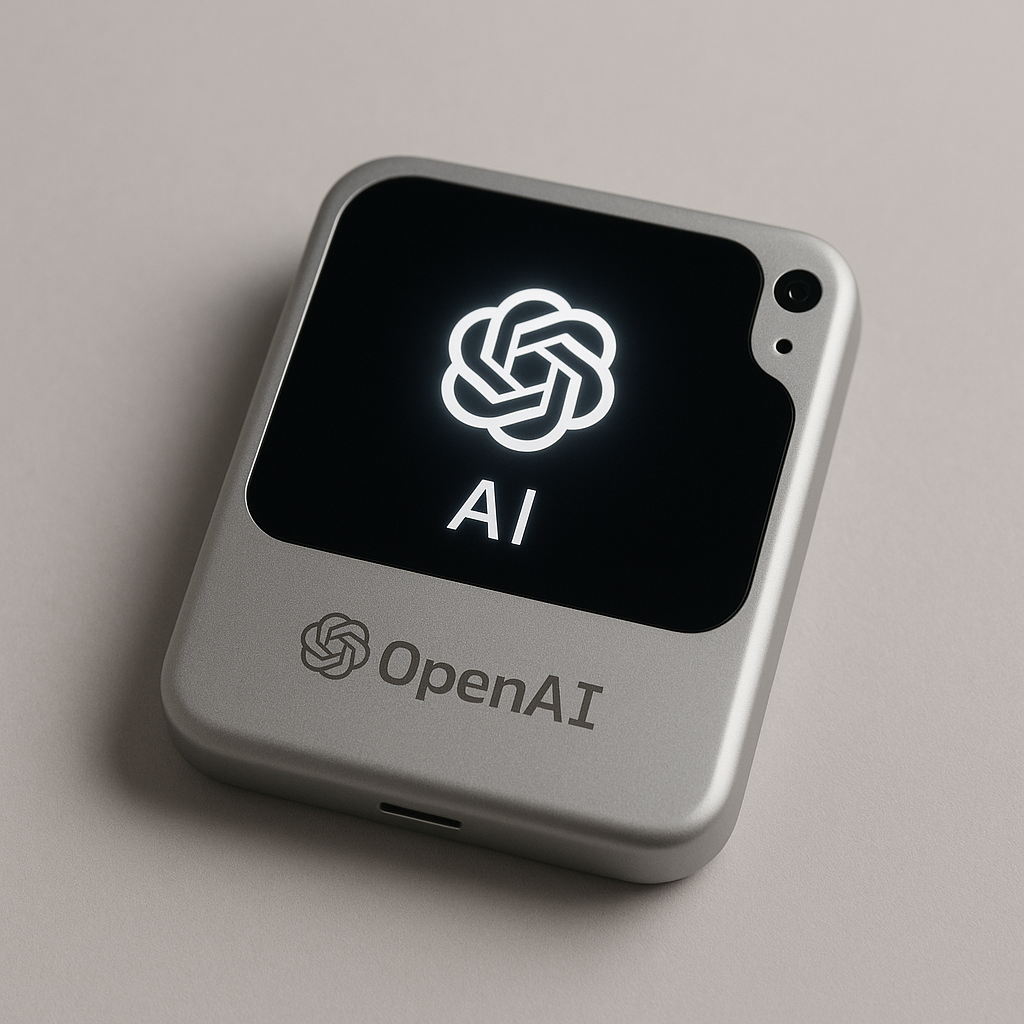Even if you’re not constantly tapped into tech or chronically online, you’ve probably heard by now that OpenAI and Jony Ive have joined forces to work on an AI hardware device. The firm behind ChatGPT has partnered with the legendary ex-Apple designer to work on a “physical”family of devices” that will “completely re-imagine what it means to use a computer.”
As lovely as that sounds, it’s all a bit wishy-washy. This partnership between Ive and OpenAI is certainly exciting, and I expect it to produce the first AI wearable that actually works as expected. But I don’t think that it’ll be an iPhone killer.
All the right ingredients for killer AI hardware
To recap what’s happened, Sir Jony Ive is the bloke who basically made Apple devices look as good as they do. He’s joining forces with Sam Altman. The AI firm is acquiring io, a startup founded by Ive, in a deal reportedly worth a tidy $6.4 billion. As part of the buyout, Ive will step into what’s described as “deep design and creative responsibilities” across OpenAI.
The mission? Cook up a “family of devices” born with AI at the core (Apple pun not intended). Altman reckons this new kit will “completely re-imagine what it means to use a computer.”
Details are scarce, but the first gadget from this duo is set to land by late 2026. According to leaks from an internal staff call, it’ll be pocket-sized, hyper-aware of its surroundings, and deliberately not a phone, glasses, or anything you wear. Apparently Jony’s not a fan of tech that straps to your face. Nothing like Humane’s AI Pin, then. This upcoming device will allegedly act as a “third core device” to accompany your MacBook and iPhone. Altman further said that it’s something that’ll be able to sit on your desk
The collaboration isn’t entirely out of the blue – io was born out of a few years of collaboration between Ive and OpenAI, and OpenAI already owned a 23% stake. But now, with Ive on board properly, Altman thinks OpenAI could be working on the future. LoveFrom, Ive’s post-Apple design house, will remain independent.

All that adds up to all the right ingredients for making a bit of AI hardware that actually works. OpenAI is without a doubt at the head of the AI pack, consumer-wise. ChatGPT gets more than 5 billion monthly visits – which is one hell of a brand. And Ive brings years of history. While not the chief visionary behind Apple, his detail-obsessed approach to design has undoubtedly made Apple’s biggest hits what they are today.
Just having a background from Apple isn’t enough to get a product into the hands of users – just look at Humane. And Ive’s designs weren’t always a win (remember Bendgate?). But if anyone can up with the visionary design for a brand new product category, I trust Jony Ive. And if anyone can provide the AI chops behind it, I’d put my money on OpenAI.
But while they might be able to make a killer bit of AI hardware, getting people to actually use it will be hard enough.
The problem? Getting people to use it
Beyond the fact that the Humane AI Pin and Rabbit R1 didn’t actually work as advertised, the biggest problem with these devices is that they’re secondary. You have to carry around an extra device with functionality that you could do on your phone. Rabbit, particularly, could have been an app on your phone.
Ive and OpenAI’s device is peculiar, as it falls firmly in that category. It’s not even a wearable, like the Humane AI Pin tried to be. Glasses or earbuds make the most sense for an AI device, but even then that’s not perfect. 38% of the world doesn’t wear glasses, so wearing a set would be a big adjustment. I quite like Meta’s Ray-Bans, but that’s because I already wear glasses. Even then, they quickly get uncomfortable because of the extra heft inside. And earbuds get uncomfortable after a while, so getting people to wear these all the time is also a big barrier.
But a pocket-sized device that you need to carry or put on your desk? That has one of the biggest barriers to getting people to actually use it. You have to adopt a new device, and change your habits to start using that in place of your phone. A phone, that is, that already carries an entire ecosystem. And that’s something OpenAI can’t compete with.
Apple, Google, and Microsoft all have their own ecosystems – Apple specifically. iPhone, AirPods, Mac, iPad, App Store, Music, and other services are hard to beat. Especially when they all tie in nicely. And especially when you can already access AI services like ChatGPT on those devices.
There’s no doubt in my mind that OpenAI and Ive are going to create the best bit of AI hardware we’ve seen to date. I’ll probably buy it, and I’ll probably love it. But it’s going to stay firmly in the enthusiast and early adopter community, because it just can’t compete with the devices we’ve come to rely on too much.
Read the full article here
